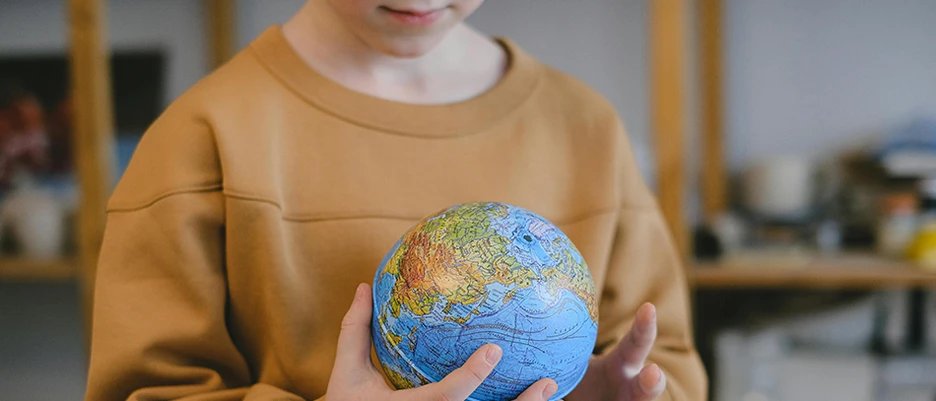
Creating opportunities and shaping the future for generations to come - this is what you can achieve if you include the TUM University Foundation in your will. In this way, you can support issues that are particularly close to your heart beyond your own life.
Here you will find answers to the most important questions on the subject of inheritance and bequests, our guide for downloading and details of our information event.
Your advantages at a glance
If you support science and research at TUM with your legacy:
- Your estate will benefit your ideas in the field of science and research in full.
- We will be happy to discuss your personal wishes and ideas with you.
- We would also be happy to put you in touch with an inheritance law specialist in Munich.
- Experience in the trustworthy liquidation of apartments, houses and estates.
- Personal contact during your lifetime.
Decide during your lifetime how you want your inheritance to be used or make unrestricted funds available where they are most urgently needed.
For example, you can:
- award scholarships
- endow chairs
- support research
- construct and equip buildings

The great value of endowments to the capital stock
With the income generated by your endowment in the capital stock, you ensure long-term, flexible support for TUM. - New research topics, professorships, scholarships, equipment, buildings - many things are made possible.

Do you want your money to have an immediate effect?
If you do not wish to transfer the money to the capital stock, you can specify directly during your lifetime what it is to be used for. This enables us to act quickly and at short notice in your interests. Please feel free to contact us.
Why we made our will in favor of the TUM University Foundation
"As we have no children, we want to use our estate wisely and have it settled during our lifetime. Education is important to us because it is the basis for the prosperous development of our society. We find this all the more important because Germany is a country with few raw materials and therefore has to score points with other values, namely research and teaching. It therefore makes sense to promote university education and thus talent, as this creates an essential foundation for new generations of academics, researchers and entrepreneurs. When we got to know the TUM University Foundation, we had the impression from both the foundation team and the projects supported that we were in the right place. We hope to contribute to the prosperity and well-being of future generations in our country through our legacy."
Founder and testamentary donor S.L. und H.L.
If you decide to support TUM in the long term, there are various options that play an important role in drawing up a will. Here we briefly explain the most important differences:
Legacy

With a legacy, the beneficiary receives a fixed amount of money or certain assets from the estate. They do not become a member of the community of heirs.
Inheritance

An inheritance entitles the heir to all the rights and obligations of the deceased.
Gift

In the case of a gift, the donor transfers money or an object to the donee during his or her lifetime without receiving anything in return.

The answers correspond to German legislation and are relevant to citizens of Germany. Therefore the text is not translated into English.
Ein Testament müssen Sie aufsetzen, wenn Sie Ihr Vermögen anders aufteilen möchten als es die gesetzliche Erbfolge bestimmt. Vielleicht wollen Sie Ihren Ehe- oder Lebenspartner besser absichern oder eine Stiftung unterstützen, mit deren Zielen Sie sich identifizieren. Kinderlose möchten oft nicht, dass entfernte Verwandte oder der Staat ihr Erspartes erben. Ganz gleich, wie groß Ihr Vermögen ist: Ein Testament gibt Ihnen die Gestaltungsfreiheit selbst zu bestimmen, wofür Ihr Nachlass in der Zukunft eingesetzt werden soll. Der Gesetzgeber hat dafür gesorgt, dass Ihre nächsten Angehörigen in jedem Fall mit einem Pflichtteil bedacht werden. Die Höhe des Pflichtteils entspricht der Hälfte des gesetzlichen Erbanspruchs.
Wenn Sie kein Testament hinterlassen, wird Ihr Nachlass nach der gesetzlichen Erbfolge unter Ihren Familienangehörigen verteilt. Das Gesetz unterteilt die Verwandtschaft in Ordnungen: Zur ersten gehören Ihre Kinder, Enkel und Urenkel, zur zweiten Ihre Eltern und Geschwister, zur dritten die Großeltern und deren Nachkommen, usw. Wenn Sie alleinstehend sind und keine Verwandten haben, fällt Ihr gesamtes Vermögen an den Staat. Weitere Details finden Sie im Erbschaftsteuer- und Schenkungsteuergesetz (ErbStG). Eine verbindliche Rechtsauskunft kann Ihnen ein Notar oder ein Fachanwalt für Erbrecht geben.
Sie können Ihr Testament entweder von einem Notar aufsetzen lassen (öffentliches Testament) oder es selbst handschriftlich abfassen (privatschriftliches Testament). Mindestanforderung an ein handschriftliches Testament ist, dass es vom Verfasser eigenhändig geschrieben und unterschrieben wird. Darüberhinaus sollte es eine Überschrift wie „Mein Testament“ haben, sowie mit Orts- und Datumsangabe versehen sein. Das Testament können Sie an einem Ort Ihrer Wahl aufbewahren. Am sichersten ist die Hinterlegung gegen eine geringe Gebühr beim zuständigen Amtsgericht.
Erbe
Wenn Sie mit Ihrem letzten Willen die TUM nachhaltig über Generationen hinweg unterstützen möchten, können Sie die TUM Universitätsstiftung als Erbin oder Miterbin einsetzen. Der Erbe – oder die Erbengemeinschaft – tritt Ihre Rechtsnachfolge an mit allen Rechten und Pflichten. Er erwirbt sowohl Ihr Nachlassvermögen als auch eventuelle Verbindlichkeiten. Eine mögliche Formulierung lautet:
Zu meinem Erben bestimme ich die TUM Universitätsstiftung, Arcisstr. 21, 80333 München.
Oder:
Zu meinen Erben bestimme ich:
1. ___________zu ____%
2. TUM Universitätsstiftung, Arcisstr. 21, 80333 München, zu ____%
3. ___________zu____%
Vermächtnis
Wenn Sie die TUM Universitätsstiftung in Ihrem letzten Willen begünstigen wollen, ohne sie als Erbin einzusetzen, können Sie dies über ein Vermächtnis tun. Auf diese Weise können Sie einzelne Vermögenswerte zuwenden, z. B. ein Bankguthaben, eine bestimmte Geldsumme oder eine Immobilie. Eine mögliche Formulierung lautet:
Die TUM Universitätsstiftung, Arcisstr. 21, 80333 München, erhält als Vermächtnis _________EUR und/oder _________(Wertpapiere) und/oder ____% meines Vermögens und/oder die Immobilie _________
Innerhalb der TUM Universitätsstiftung gibt es Stiftungsfonds, die bestimmte Themen oder Projekte unterstützen. Ab einem signifikanten Betrag besteht die Möglichkeit, selbst einen Fonds einzurichten, mit dem Sie ein Anliegen unterstützen, das Ihnen besonders wichtig ist. Sprechen Sie uns an. Wir beraten Sie und finden mit Ihnen gemeinsam die sinnvollste Lösung für Ihren Wunsch.
Das Amts- bzw. Nachlassgericht informiert die TUM Universitätsstiftung darüber, in welcher Weise sie in Ihrem Testament bedacht wurde. Die Stiftung sorgt dafür, dass das Erbe oder das Vermächtnis so bald wie möglich in die Projektarbeit oder den Kapitalstock der TUM Universitätsstiftung fließen, je nachdem, was Sie als Erblasser verfügt haben.
Zustiftung
Sie können die TUM Universitätsstiftung bereits zu Lebzeiten mit einer Zustiftung in den Kapitalstock stärken. Ab einem signifikanten Beitrag und in Absprache mit dem Stiftungsvorstand ist es möglich, Fonds zu Themen einzurichten, die Ihnen besonders am Herzen liegen. Ihre Unterstützung können Sie bis zu einem vom Gesetzgeber festgelegten Betrag steuerlich geltend machen.
Verfügung zugunsten Dritter
Mit einem „Vertrag zugunsten Dritter auf den Todesfall“ können Sie Wertpapiere, ein Sparbuch oder ein Bankkonto einer gemeinnützigen Organisation wie der TUM Universitätsstiftung übertragen. Aus rechtlicher Sicht handelt es sich dabei um einen Schenkungsvertrag, den der Kunde mit seiner Bank abschließt. Zu Lebzeiten kann der Kunde weiterhin uneingeschränkt über die vom Vertrag erfassten Konten verfügen. Sie können die TUM Universitätsstiftung auch als Bezugsberechtigte Ihrer Lebensversicherung einsetzen. Wenn Sie die Fälligkeit nicht mehr erleben sollten, fällt das Auszahlungskapital an die Stiftung.
Where can I get more information?
If you would like more information on how you can support TUM with your legacy, please contact us at any time. We will be happy to advise you and look forward to talking to you. You can obtain legally binding information on wills and inheritance from a lawyer specializing in inheritance law or from a notary. Together with such experts, TUM organizes free information events on the subject of inheritance and wills. We will be happy to inform you about the next event. Contact us

Download our information brochure
Our guide highlights various motives and options for remembering TUM in your will and provides answers to the most frequently asked questions about drafting a will. You can request the brochure free of charge at fundraising(at)zv.tum.de or download it as a document (available only in German).

Inheriting assets correctly - lecture on inheritance law and wills
Next information session: March 16, 4:30 p.m. – approx. 6:00 p.m. - For more information, please register with Ms. Ahrendt at ahrendt@tum.de or 089/ 289-25314.
For many people, it is important to protect their closest relatives by making a will. TUM offers its members, friends, sponsors and other interested parties the opportunity to find out more in a lecture on the subject of "Inheritance". For some who may not have close relatives, the question of how to include organizations or institutions such as the Technical University of Munich in a will is also important. Regardless of who you wish to benefit in your will, expert advice is always of great benefit. In his one-hour presentation, lawyer Ludger Bornewasser will introduce you to important areas of inheritance law in an easy-to-understand manner. Using examples, you will learn how you can implement your wishes through a cleverly drafted will. In addition to Mr. Bornewasser, employees of the TU Munich and the TUM University Foundation will also answer your questions.
(for more information, please register with Ms. Ahrendt at ahrendt(at)tum.de or 089/289-25314)

Read more: An exemplary model
An exemplary model: Portrait of Senator E. h. Dipl.-Ing. Hanns W. Weidinger in the alumni magazine KontakTUM (Pdf-Download 0,3 MB) (German)
Would you like to find out, without obligation, how you can support research and education at TUM by making a donation in your will? Together with you, we will find the optimal solution to realize your funding intention. We look forward to hearing from you.

Carolin Ahrendt
ahrendt(at)tum.de
Tel. 089/289-25314

Sabine Tittel
tittel(at)zv.tum.de
Tel. 089/289-25316

